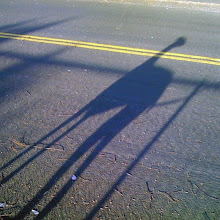Epiphany Eve Auto-Cannibalization
Reading When You’re Feeling Sleighed
OK. I wrote the last column about holiday gift giving, so now my thoughts have curdled like eggnog left out overnight too close to the fireplace. C’mon, who hasn’t had the urge to knee a cheery-faced caroler dressed up like some Dickensian wannabe right in the old Yule log?
Luckily many authors know of our holiday pain. David Sedaris has a whole nifty little book, Holidays on Ice (Little, Brown 1997), complete with his fame-making tale about working as an elf at Macy’s, plus a sweet one called “Dinah the Christmas Whore,” plus a mock diatribe written by a splenetic reviewer about the piss-poor holiday pageant at Sacred Heart Elementary. Three of the pieces are reprints, too, so although the price is cheap, you kind of get ripped off in the true Christmas spirit.
Then there’s Lorrie Moore, whose ability to have fun with puns in no way obscures her ability to wield words like scalpels at our hearts. She seems to return to the holidays again and again, as they are a crucible of family at its most unholy. There’s “Amahl and the Night Visitors: A Guide to the Tenor of Love” from Self-Help (Plume 1985), where love goes wrong, the cat wanders away, and people confuse “you can’t be in love with them all” with “you can’t be in love with the mall.” And there’s “Charades” from Birds of America (Knopf 1998), in which a family doesn’t even go nuclear—-they don’t know each other well enough to explode.
But for deepest sorrow, you can’t beat Anton Chekhov. In the U.S. we know him best for Meryl Streep’s opportunity to do a cartwheel in Central Park, and indeed his plays are wonderful, but the short stories are a lesson in what fiction can be. Here I’m thinking most of “Heartache,” which I was sure took place on Christmas Eve till I just re-read it this evening. Nonetheless, it’s about unbearable grief, the need to tell tales, the invisible nature of the working class, the deathly quiet of snow, and the kindness of animals. One of the most stunning six pages you can read.
Speaking of snow, there’s Midsummer Snowballs (Abrams 2001) by Andy Goldsworthy, which chronicles his recent art project: he made 13 one ton snowballs in Scotland, refrigerated them, then brought them to London in July. Each hides its own mystery as it melts, from feathers to barbed wire, and the book is straightforward in its photos and journal-like entries in the face of this man-made meteorologically impossible. The project leads one to wonder about wonder, and reminds us art so often connects us to youthful urges.
The urge to come to CA probably isn’t necessary to explain to you if you live here. Once, however, the state had to be sold, and KD Kurutz and Gary F. Kurutz decided to compile all those efforts in California Calls You: The Art of Promoting the Golden State: 1870 – 1940 (Windgate Press 2001). Of course I wanted to scoff, not to believe the hype, but the hype is so damn beautiful. All the reproduced flyers and posters and ads glisten with promotional art savvy and style.
Although I personally would take Porter over Berlin, that choice is akin to deciding it’s better to watch a Preston Sturges instead of a Lubitsch (how obscurely artfully I can avoid “six of one, half a dozen of the other,” huh?). That takes nothing away from the mammoth The Complete Lyrics of Irving Berlin (Knopf 2001), which includes “God Bless America,” the current hit-of-hits that many blacklisted back in 1938 as Berlin had the nerve to be Jewish. The book seems off to an inauspicious start merely with its first song title, “Marie from Sunny Italy,” but then realize that except in the rhyming world of song, Marie would be Maria, and Berlin’s sly wit comes clear.
So have a Happy New Year.
Labels: aged words, well-seasoned books


0 Comments:
Post a Comment
<< Home